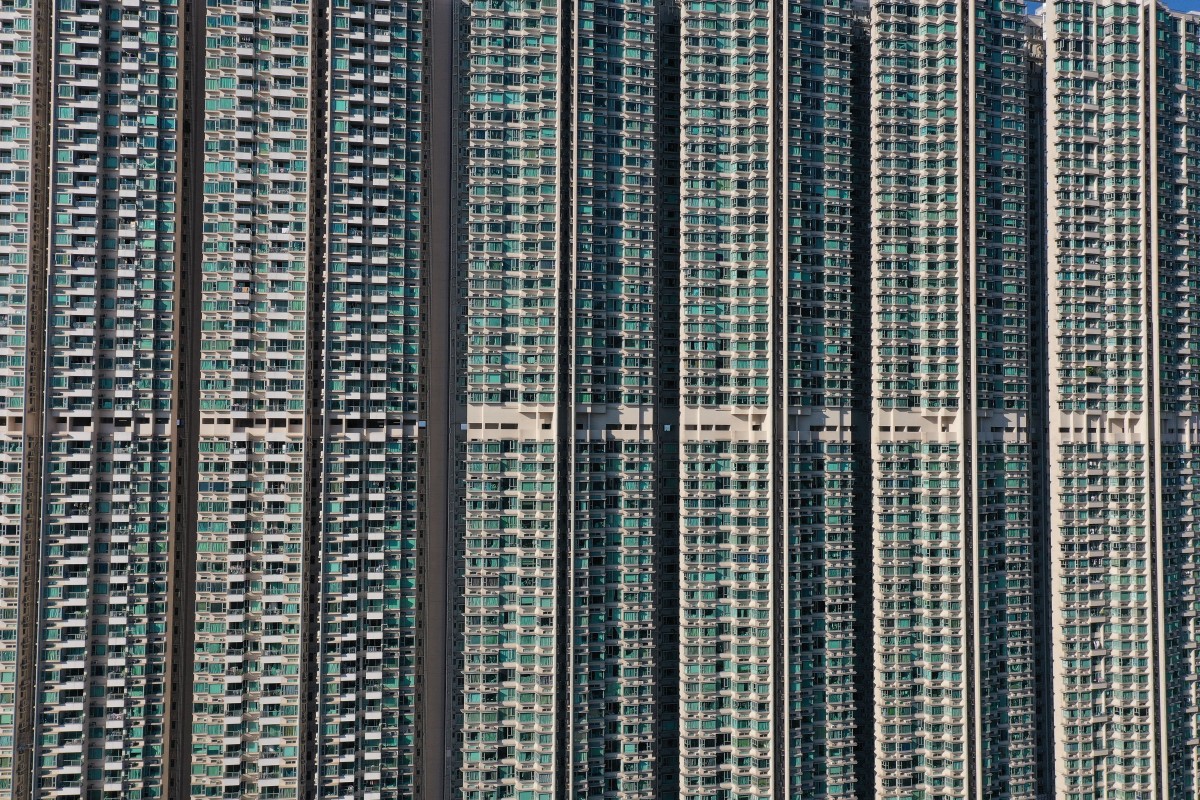
This aerial photo taken on October 14, 2024 shows apartment blocks in Tung Chung on Lantau Island in Hong Kong. Agence France-Presse
HONG KONG — Hong Kong leader John Lee rolled out plans on Wednesday to ban flats under eight square meters and cut import tax on spirits in a bid to ease a long-term housing crunch and boost the city’s sluggish economy.
Lee’s administration has vowed to focus on livelihood issues and take the Chinese finance hub “from stability to prosperity” following a wide-ranging crackdown in the wake of pro-democracy protests in 2019.
Lee’s speech was his third policy address since the former security chief was tapped by Beijing to be the city leader in 2022.
READ: Scorching heat magnifies housing crunch for Hong Kong’s elderly
Speaking at the semi-autonomous city’s Legislative Council, he said flats smaller than eight square meters (86 square feet) — twice the size of a king-size bed — would be banned.
Registered landlords will be given time to make sure their subdivided flats meet the minimum size and other conditions, including having windows and independent toilets.
Chinese President Xi Jinping has ordered Hong Kong to resolve its longstanding housing woes.
The city has some of the most expensive housing in the world and 110,000 households in a population of 7.5 million live in subdivided flats.
READ: Weak demand, tighter lenders: HK property developers face tough 2024
A government study in 2021 found that 21 percent of households in subdivided units had a living space of below seven square meters (75 square feet) — smaller than a parking space.
Lee also on Wednesday slashed taxes on liquor with more than 30 percent alcohol content and an import price over HK$200 (US$25.75) — a move hoping to “boost… tourism as well as high-end food and beverage consumption”.
Other policies to bolster the economy included expanding the investors immigration scheme to include luxurious residence buyers and setting up a HK$10 billion (US$1.29 billion) fund to invest in industries like artificial intelligence and semiconductors.
Initiatives were also rolled out to increase the admission of university students and workers to mend a shortage of 180,000 laborers in the next five years.
Hong Kong’s economy has yet to bounce back after the 2019 protests and the subsequent three years of self-imposed isolation due to pandemic curbs.
Hong Kong officials are also eager to repair the city’s international reputation, which took a hit after the implementation of two national security laws that critics say have curtailed rights.
Shortly before Lee’s address, five activists from the League of Social Democrats, the city’s last remaining opposition party, staged a petition outside government headquarters closely watched by a dozen police officers.